– The biggest risk is not trying to realize your dreams. And we can see that it is possible not only on mine but on numerous examples. I have met many people who have returned from various countries, says the entrepreneur from Mostar who is constantly planning new things.
Dissatisfied with work and political conditions, more and more people from Bosnia and Herzegovina are leaving, and some research shows that every second young person is thinking about leaving temporarily or permanently. According to data from the Union for Sustainable Return and Refugees in Bosnia and Herzegovina (UZOPI), as many as 600,000 residents have moved out in the last ten years .
Estimates say that, if they had the opportunity, between 60 and 80 percent of young people would go to build a life outside the borders of Bosnia and Herzegovina. Foreign embassies in our country are overwhelmed with requests for visas from BiH citizens who want a safer environment with a quality education and health system, and greater employment opportunities with adequate incomes. The youth unemployment rate in Bosnia and Herzegovina is even four times higher than in the countries of the European Union, and according to The Economist magazine, BiH is at the top of the list with the largest brain drain. The fact that even 51.3 percent of young people are interested in leaving BiH is also worrying .

Despite such discouraging data, there are also those who returned to their homeland from abroad even though they had all the predispositions for success there .
Senad Šantić’s desire for his homeland brought him back to Mostar a few years ago. He went to Sweden at the age of four, and after his education and first work experience, he went to California, where he gained new experiences in the IT industry . At the end of 2016, he decided to return to his homeland and start his own business. He founded the consulting firm ZenDev , which offers software development services primarily for the Swedish market.
– During that period, I needed a change in my life , and Mostar was always dear to me. Every summer I looked forward to Mostar and spending time with friends. To be completely honest, I never think through everything in my life about how things will work out, and in this case it turned out to be good, says this young and successful entrepreneur who has been working on the promotion of Bosnia and Herzegovina for years.

Together with other employees, Šantić found a way for digital nomads (entrepreneurs who perform their work exclusively using digital technology) to stay in Bosnia and Herzegovina for longer than three months. He previously emphasized the importance of digital nomads for the economy of BiH, stating that one digital nomad lives in the country on average 300 days a year, which brings our country a profit equivalent to what 300 tourists who visit BiH for one day would achieve, which shows the enormous potential that digital nomads can have on the local economy.
The latest in the series of successes of Šantić and his company, which has 80 people, is the product Avidnote, which went from $0 to $150 in three months. 000 making it one of the fastest growing ed-tech startups in the entire world.

– I think it is crucial to popularize entrepreneurship . In Bosnia and Herzegovina, the competition is very low, which is why people who choose entrepreneurship have more opportunities, but also do not have enough examples of successful entrepreneurs in their community. I was lucky and watched a team from my college launch a Spotify. Now I’m trying to use my example to show young people in Bosnia and Herzegovina that it is possible to make a great entrepreneurial story here too. It is also important to change the way you think. I often hear that there are no investments, but it is necessary to think differently and always ask yourself what it is that I can offer and what someone will be willing to pay. I don’t think that people should stay in BiH if they don’t want to, but I want to create conditions in which young people will leave our country because they want to, and not because they have to, Šantić told InfoRadar.
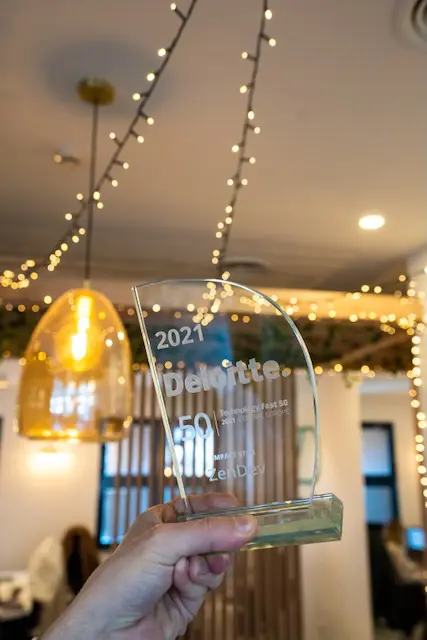
He recalls that the first year of his return to Bosnia and Herzegovina was very difficult.
– I told myself that no matter what happens, I have to last a year. After that year, both the team and I became better and it was easier to create a beautiful story for our community and the wider community , states the Mostar and adds that he did not regret returning to Mostar.
– Everyone looked at me strangely when I told them that I had decided to return to Mostar. It helped that my older brother had already returned to Mostar and was working in the financial sector from Mostar with clients outside. I knew that if he could do it in finance, it would be even easier for me in the IT sector. This year, my parents permanently returned from Gothenburg to Mostar and now the whole family is back in place. That’s why I’m especially happy, adds the owner of ZenDev.
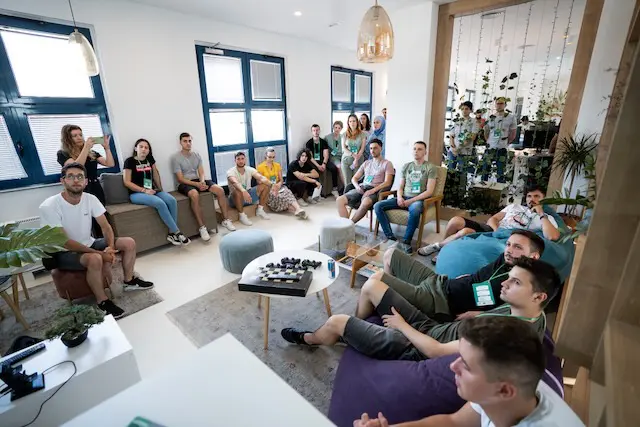
He admits that everyone warned him that the bureaucracy in Bosnia and Herzegovina is complicated , and he points out that he was negatively surprised by dealing with the “gray economy”.
– Six intense weeks had to pass and various administration and paperwork had to be completed, but I don’t think that can be a reason to give up. Although the IT sector is more advanced compared to other sectors, the fact is that elements of the shadow economy are present everywhere – from opening trades to mysterious transactions and payments in envelopes. The situation today is significantly better than it was in 2016 when we founded ZenDev. Nevertheless, it is still difficult to accept the fact that if you operate according to the law, you are in a deficit compared to companies that find ways to circumvent the same law, explains Šantić and advises those who are thinking about returning to “come and try, and spend as much as possible time in Bosnia and Herzegovina”.
– The biggest risk is not trying to realize your dreams. And we can see that it is possible not only on mine but on numerous examples. I met many people who returned from various countries, says the entrepreneur from Mostar who is constantly planning new things.
– And it’s not just me, the whole company comes up with new ideas and suggestions , and that’s what makes me particularly happy, points out Šantić, who took all the employees of the ZenDev company on an annual vacation to Turkey a few years ago.
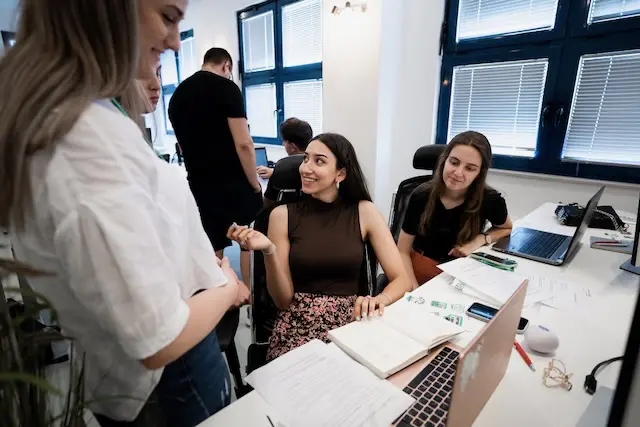
When asked what is necessary and crucial for successful entrepreneurship in Bosnia and Herzegovina , and what would you say to those who want to, but are afraid to return to Bosnia and Herzegovina, Šantić says: “The way I see it, you need to have a good product or service – something for are people willing to pay. In our case, it is consulting IT services to clients from all over the world, but mostly Scandinavia, and our products that we develop in parallel because we want to use the knowledge we have gained through years of working with clients. The second and most important item of any business – people, you must have a good and motivated team that will work together with you. Without people, there is no company . “
Šantić is not thinking about returning to Sweden or another country. He says that he is happy in BiH and that he wants to develop the community and build the story of ZenDev and products from BiH.
– I believe that we can do it with the talent of our people, concludes the owner of ZenDev.
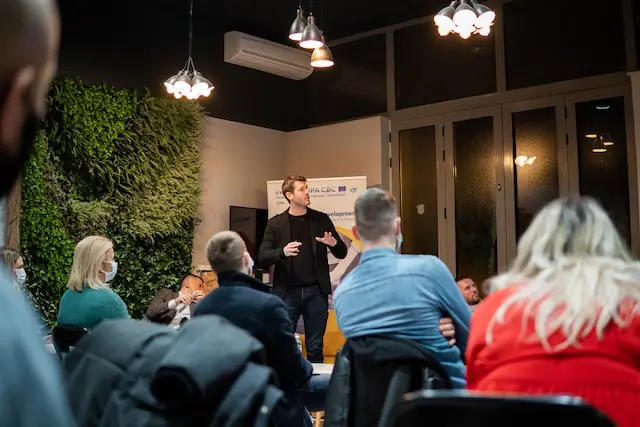
Back in 1992, the then 15-year-old Sarajka Lilijan Sulejmanović also left Bosnia and Herzegovina .
– My mother, brother and I had to leave Sarajevo because of the war, and my father, who was wounded, joined us later, Lilijan, who is currently living in London, where she completed her MBA studies at Harvard Business School, begins her story.
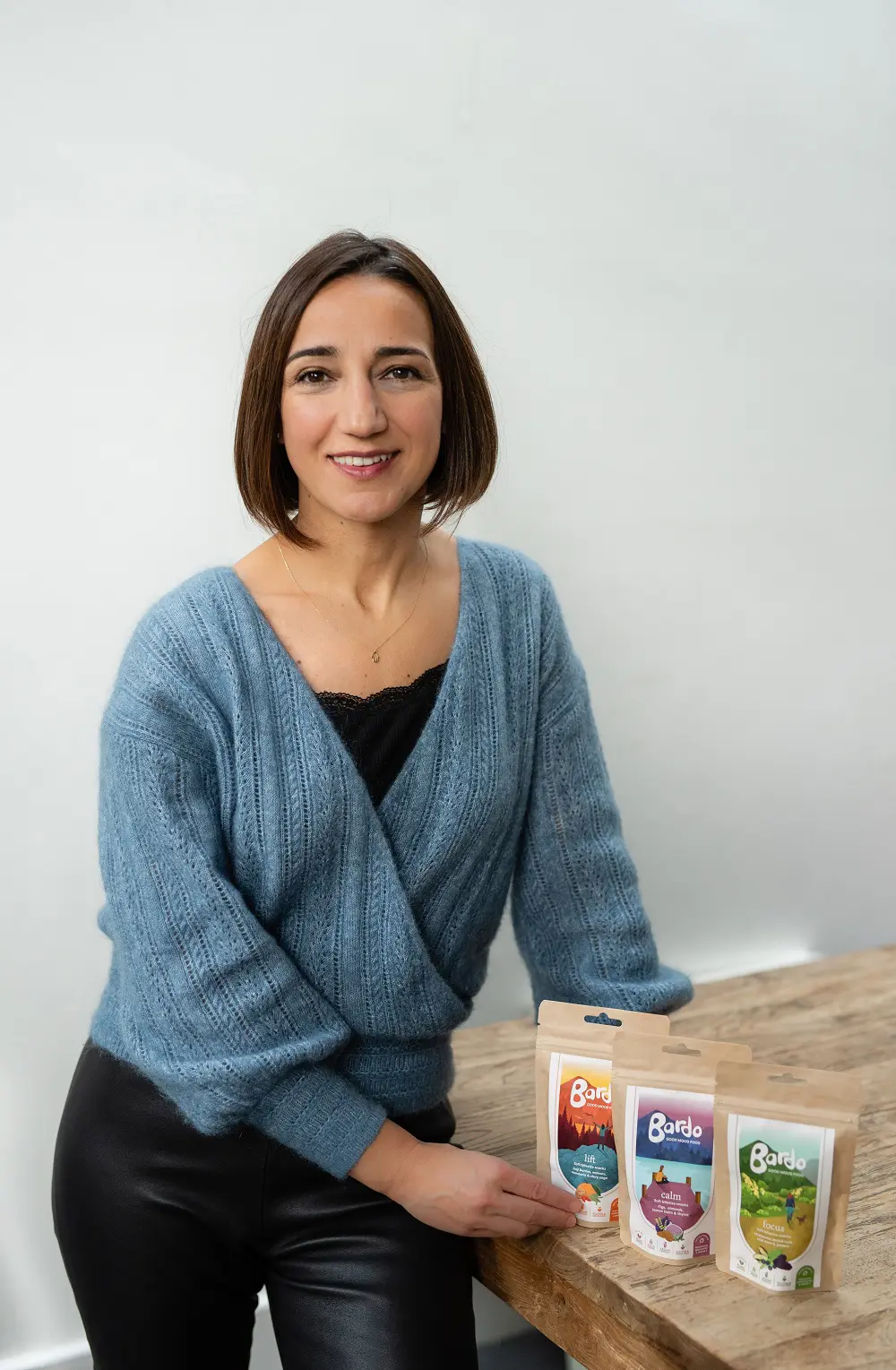
With his entrepreneurial experience, he started a business in Sarajevo in 2018 – the production of Bardo healthy snacks.
Her story about investing in Bosnia and Herzegovina , she says, had several motives.
– The first was my personal desire for a deeper connection with the homeland where I grew up, especially in the context of the war that destroyed the economy and the country. I wanted to play a positive role in the recovery of the country, the reconstruction of normal life. Even before I founded a company in BiH, I tried in other ways to apply my professional experience in the context of BiH and development. The second motive is certainly that I saw a commercial opportunity for products that we can make in Bosnia and Herzegovina and to take advantage of the comparative advantages of our economy, in terms of an educated workforce and the industrial base that we had before. Therefore, to make products that can be found on the market outside Bosnia and Herzegovina, and in this way to use the industrial capital in the country, but also to pave the way for products that are intended for consumers, the founder of Bosnia and Herzegovina told InfoRadar. of the Bardo brand.

She found the idea of producing healthy snacks in her love for healthy food.
– I have always been interested in healthy eating, as well as medicinal plants . This is the tradition in which we grew up. When I became a mother, I became even more aware of products and what they contain. I saw the possibility, the need and the potential for snacks, because it’s something we always buy when we’re hungry and don’t have enough energy. Snacks are the most unhealthy part of the diet, and that’s where I found the opportunity to apply our thinking about dried fruit and nuts and to try to make healthy treats that taste great and are made on a healthy basis and without added sugar, adds Sulejmanović for InfoRadar.
Before starting the business, Lilian encountered a large number of obstacles.
– One of the big obstacles I encountered when starting a business is the bureaucracy in our country and the lack of digital processes. A lot of papers have to go through notaries, lawyers… and all of that requires money because these are not cheap services. Many young people can give up very quickly because everything seems too complicated. The system does not support small businesses in that context. There is a lack of capital for start-ups and incentives from the state. No one has a job in the institutions to help companies to register, to do business professionally, no incentives, benefits, services are provided… To go down this path, you have to have a lot of self-initiative, points out Sulejmanović and reminds that in BiH there are many household trades and large a number of them have the potential to become small or medium enterprises.
– However, a large number of them never cross that step to become a professional firm because the whole process seems very complicated. And all due to the lack of support at the systemic level, the founder of BiH is clear. of the Bardo brand, which is currently focused on the export of this BiH. products to the UK market.

– It is a market with a large capacity . I believe that the product has potential in itself and in the region as well as on the European Union market, but we still do not have the capacity to go to all those markets, explains Sulejmanović, who lives on the London-Sarajevo route.
The fact that she lives with her family in London does not prevent her from spending a lot of time in Sarajevo.
– Now we have several different options for a direct London-Sarajevo connection and this allows me to be in BiH and our production often, Lilijan points out and adds that she is disappointed with the support of domestic distribution chains.
– We are satisfied that we are on the market and that we have cooperation with the DM chain , which proved to be an excellent pair of t net , and with several supermarkets in Bosnia and Herzegovina. We have a small presence in Bing and we wish we had more support from domestic chains that could have supported us in a better way. It is always difficult for us to get their attention, but considering that we are a positive local story and that since last year BH. we export the product to Great Britain and for two years we have been selling the products in the Duty Free Shop at the Sarajevo Airport , and in that way we represent the positive face of BiH, I hoped that large companies would see a greater potential to cooperate with us. But that didn’t happen, Lilian says.
He emphasizes that through his products he wants to show that Bosnia and Herzegovina can place products on the global market that meet the needs of those customers, not just local ones.
– I think that many of our customers also feel pride when they see a domestic brand that tries to do well without deceiving customers into consuming something that is not good for them, says Sulejmanović and adds that she is satisfied with the customers’ reaction.
He states that young people should look for the best opportunities for their further development and training, but also think about staying in contact with their colleagues in the country and ways in which they can be mentors.

– We don’t need to blame them for leaving because they are doing what is rational. We should put pressure on our institutions to create better conditions and infrastructure that can support and retain talented people in our country . What I would tell them is to stay in professional ties and contacts with their colleagues in the country and to think about the ways in which they can be mentors, to work with organizations like BiH Futures Foundation, to maintain their ties with their homeland and if they feel like show the possibility for it, then they bring the experience they have earned and learned back to their homeland and thus help the development of other companies in Bosnia and Herzegovina , says Lilijan Sulejmanović.
Nuđejm Pašić, who is the head of the ODA Homes group, also returned to BiH from abroad , followed by Suad Bešlić, a successful BiH. an engineer who gained knowledge and experience in Germany and who constructed the first domestic fire truck. He returned to BiH and started the production of fire trucks in Kalesija. Most of these young people were supported by USAID’s “Diaspora Invest” program , within the framework of which BiH diaspora and experts help develop new brands.
These young people are the proof that success is possible in BiH (even in bad conditions). It is up to institutions and politicians to stop profiting from divisions and give hope to young people and create an environment in which they will see a better tomorrow.
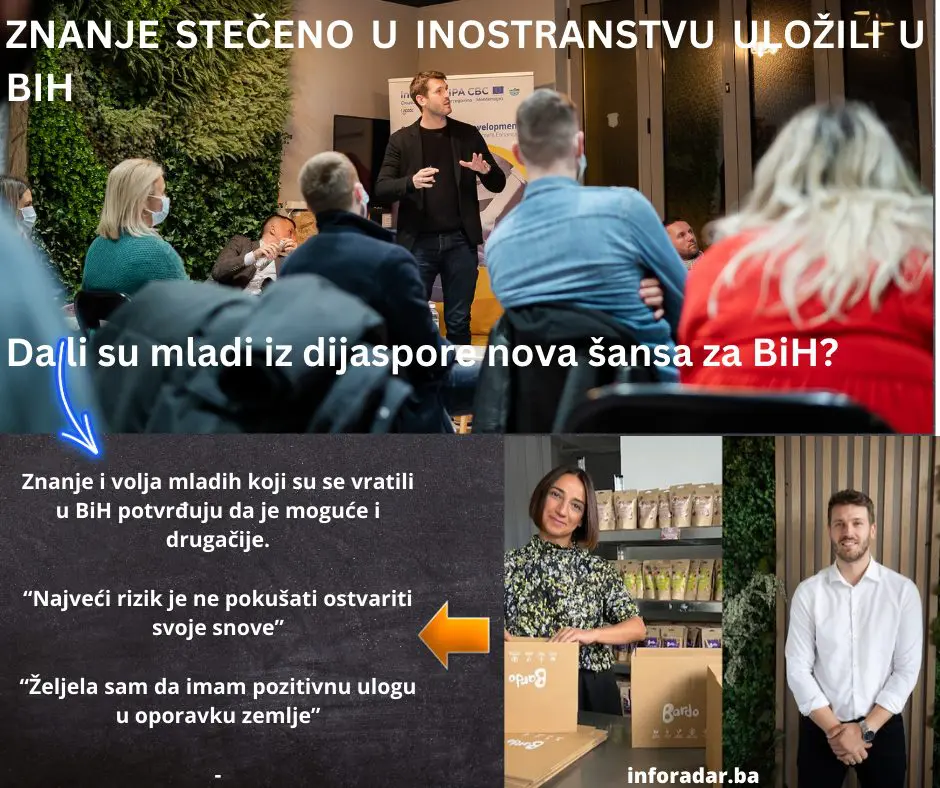
Source: inforadar.ba





